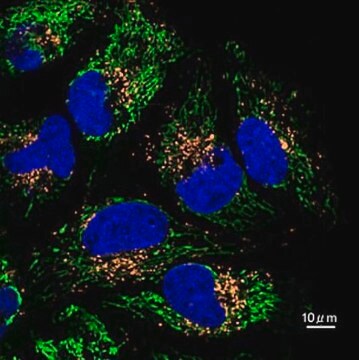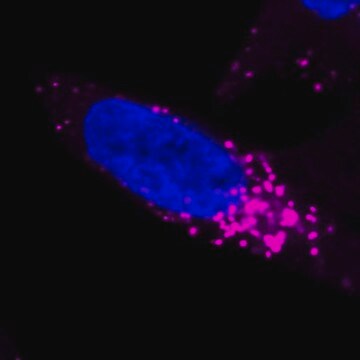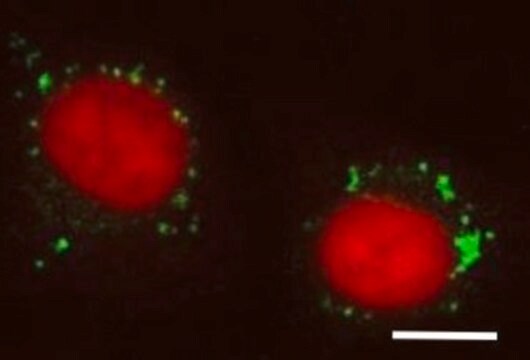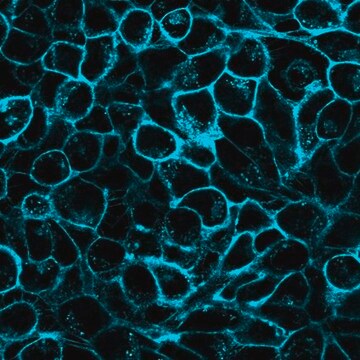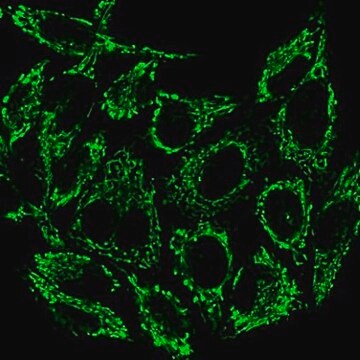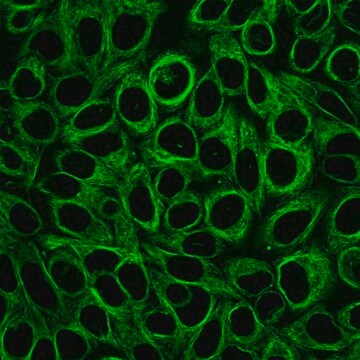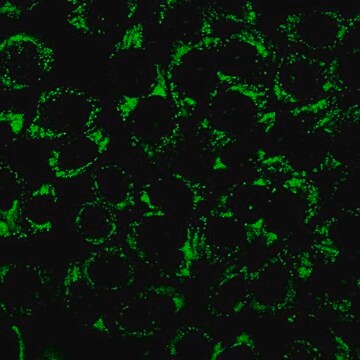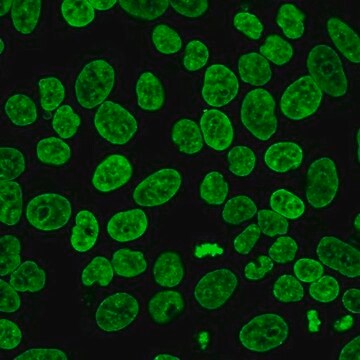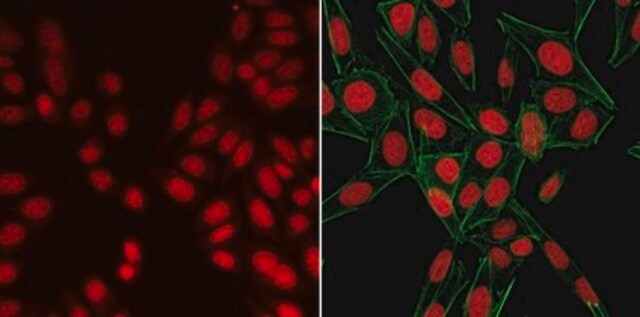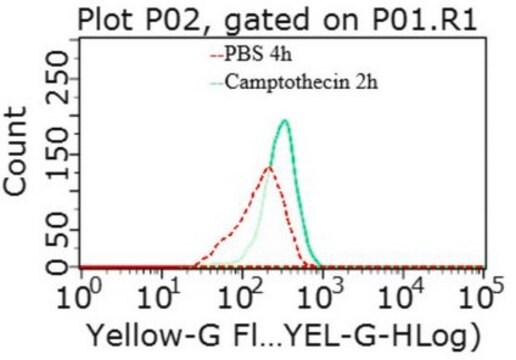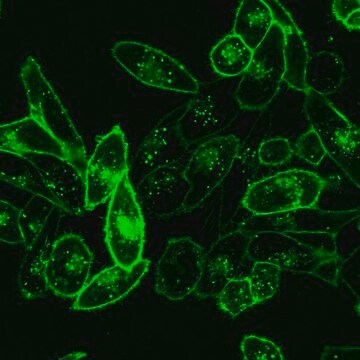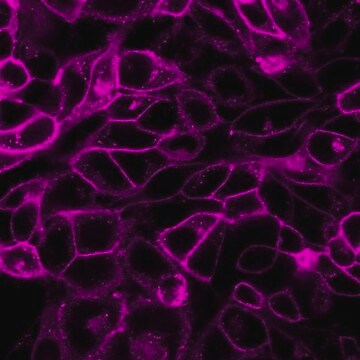SCT140
BioTracker 555 UV-Excitation Red Lysosome Dye
Live cell imaging dye for acidic cellular organelles such as lysosomes.
Synonim(y):
Live cell imaging probe
Zaloguj sięWyświetlanie cen organizacyjnych i kontraktowych
About This Item
Kod UNSPSC:
12352207
NACRES:
NA.47
Polecane produkty
metody
cell based assay: suitable
metoda wykrywania
fluorometric
Warunki transportu
ambient
Opis ogólny
Lysosomes are membrane-enclosed organelles that contain an array of enzymes capable of breaking down all types of biological material including proteins, nucleic acids, carbohydrates, and lipids. Lysosomes function as the digestive system of the cell, serving both to degrade material taken up from outside the cell and to digest obsolete components of the cell itself.
BioTracker Lysosome dyes are fluorescent stains for imaging lysosome localization and morphology in live cells. The dyes accumulate in the low pH environment of the lysosomes, resulting in highly specific lysosomal staining without the need for a wash step.
The BioTracker 555 UV-Excitation Red Lysosome is a red fluorogenic lysosome dye with pH-dependent fluorescence. The dye is unique among commercially available lysosome dyes in that its fluorescence in cells is activated by exposure to UV excitation. In solution, the dye shows pH-dependent fluorescence that does not require UV activation. The dye initially shows low fluorescence, but brief exposure to UV excitation from a mercury arc lamp through a DAPI filter.
Spectral Properties
Absorbance: 554nm
Emission: 583nm
BioTracker Lysosome dyes are fluorescent stains for imaging lysosome localization and morphology in live cells. The dyes accumulate in the low pH environment of the lysosomes, resulting in highly specific lysosomal staining without the need for a wash step.
The BioTracker 555 UV-Excitation Red Lysosome is a red fluorogenic lysosome dye with pH-dependent fluorescence. The dye is unique among commercially available lysosome dyes in that its fluorescence in cells is activated by exposure to UV excitation. In solution, the dye shows pH-dependent fluorescence that does not require UV activation. The dye initially shows low fluorescence, but brief exposure to UV excitation from a mercury arc lamp through a DAPI filter.
Spectral Properties
Absorbance: 554nm
Emission: 583nm
Zastosowanie
Live cell fluorescent imaging
Live cell imaging dye for acidic cellular organelles such as lysosomes.
Research Category
Cell Imaging
Cell Imaging
Research Sub Category
Live Cell Dye
Live Cell Dye
Jakość
Spectral Properties
Absorbance: 554nm
Emission: 583nm
Absorbance: 554nm
Emission: 583nm
Postać fizyczna
Liquid
Przechowywanie i stabilność
Store BioTracker 555 UV-Excitation Red Lysosome Dye at -20ºC. Protect From Light.
Note: Centrifuge vial briefly to collect contents at bottom of vial before opening.
Note: Centrifuge vial briefly to collect contents at bottom of vial before opening.
Oświadczenie o zrzeczeniu się odpowiedzialności
Unless otherwise stated in our catalog or other company documentation accompanying the product(s), our products are intended for research use only and are not to be used for any other purpose, which includes but is not limited to, unauthorized commercial uses, in vitro diagnostic uses, ex vivo or in vivo therapeutic uses or any type of consumption or application to humans or animals.
Ta strona może zawierać tekst przetłumaczony maszynowo.
Kod klasy składowania
10 - Combustible liquids
Klasa zagrożenia wodnego (WGK)
WGK 1
Temperatura zapłonu (°F)
188.6 °F - (refers to pure substance)
Temperatura zapłonu (°C)
87 °C - (refers to pure substance)
Certyfikaty analizy (CoA)
Poszukaj Certyfikaty analizy (CoA), wpisując numer partii/serii produktów. Numery serii i partii można znaleźć na etykiecie produktu po słowach „seria” lub „partia”.
Masz już ten produkt?
Dokumenty związane z niedawno zakupionymi produktami zostały zamieszczone w Bibliotece dokumentów.
Klienci oglądali również te produkty
Nasz zespół naukowców ma doświadczenie we wszystkich obszarach badań, w tym w naukach przyrodniczych, materiałoznawstwie, syntezie chemicznej, chromatografii, analityce i wielu innych dziedzinach.
Skontaktuj się z zespołem ds. pomocy technicznej